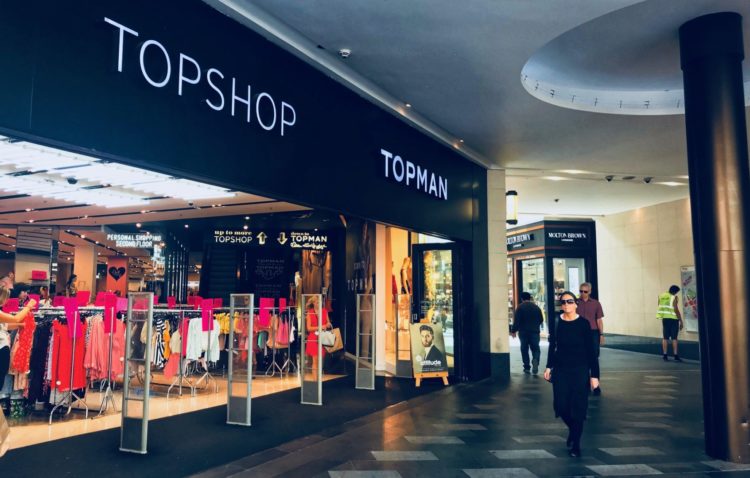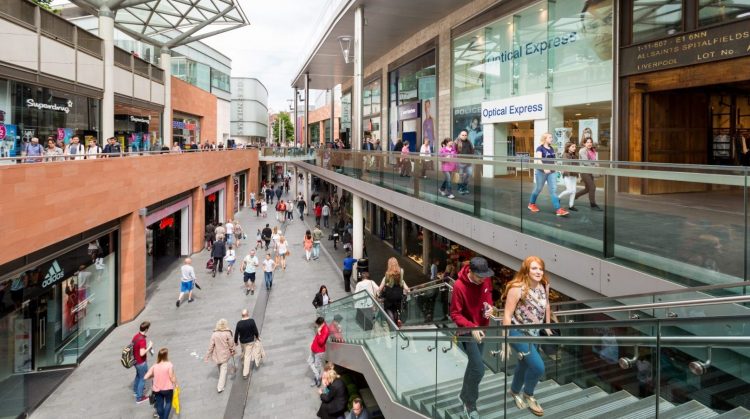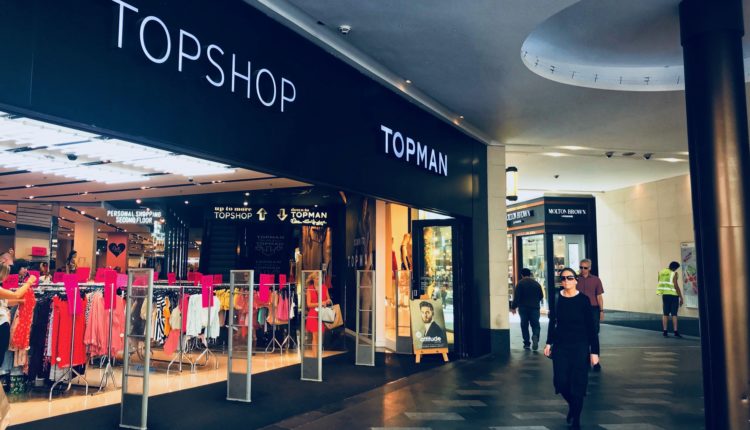Speaking to LBN, the new estate director of Liverpool ONE says he is confident the Topshop and Debenhams units would be filled quickly and predicts a post-COVID ‘spending explosion’. Tony McDonough reports

Retailers are queuing up to move in to the Liverpool city centre retail unit currently occupied by the Topshop and Topman brands of the collapsed Arcadia Group.
Online retailer Asos has agreed a deal to acquire the brands and stock of Topshop, Topman and Miss Selfridge in a £330m deal. However, the deal does not include the bricks and mortar stores. Those outlets include a 68,000 sq ft unit in Liverpool city centre which is now almost certain to close.
Liverpool’s Topshop fronts onto Church Street, Liverpool’s main retail thoroughfare, but the unit is actually part of the Liverpool ONE retail and leisure complex. And Liverpool ONE’s newly-appointed estate director Iain Finlayson has told LBN it is unlikely the four-level unit will stay empty for long.
Mr Finlayson added he was also confident Liverpool ONE owner Grosvenor would fill the 180,000 sq ft space in South John Street that is also likely to be vacated by department store Debenhams. Its brand has been acquired for £55m by online fashion retailer boohoo, which is also not taking on the physical stores.
“It is a shame both Topshop and Debenhams are likely to close as they both traded very well here in Liverpool. It was trading elsewhere that was behind their demise,” said Mr Finlayson.
“Both brands have had well publicised problems for some time there is a long back story for both. Topshop’s likely closure was possibly more of a surprise. I think there was more hope those stores could be saved. So there is a bit more work to do with that. But we have already had at least two enquiries from potential occupiers for the site.
“My heart really goes out to the workers at the Debenhams store and we have to bear in mind that it is not closed yet (it is likely the store will continue to trade once lockdown is lifted at least until the existing stock is sold).
“Obviously it is a big space and if it does become vacant then there are probably only four or five retail names in the country who could fill that kind of space. It could also be split up into two or three units. If necessary that is what the landlord (Grosvenor) may do. They are clear they are here for the long term and are always willing to invest in the estate.”
Mr Finlayson’s appointment to estate director at Liverpool ONE was announced last week. He has been with the business for seven years. He previously held the position of business performance director and, prior to that, had also worked for Ikea and Blackwell’s Bookshop.
He says his appointment to the role is a change from the previous strategy. Long-time estate director Chris Bliss, who remains a consultant to Liverpool ONE via his own business The Momentum Group, had according to Mr Finlayson, a more operational role. His role, he added, would be more focused directly on the customer offer.
Liverpool ONE, which comprises 170 shops, restaurants, bars and leisure outlets, cost £1bn and opened in September 2008, Liverpool’s Capital of Culture year. Along with the opening of the ACC arena and convention centre, it was seen as the saviour of Liverpool’s retail and visitor economy.
John Lewis was an anchor tenant of Liverpool ONE, along with Debenhams, and the chain’s then chief executive, Andy Street (now West Midlands metro mayor), claimed the development had saved Liverpool’s retail core from market collapse.
Now, after more than a decade of growth, Liverpool ONE faces the biggest challenge in its short history. Since March 2020 the retail and leisure sector has been hit badly by the COVID-19 pandemic. Multiple lockdowns have seen all but essential outlets forced to close for long periods.
However, Mr Finlayson is optimistic for the post-lockdown prospects of Liverpool ONE and the city itself. He acknowledged this current lockdown has been the darkest for many people but predicts, once restrictions are lifted, the latent demand to shop and socialise will “explode”.


“There is no doubt that, as a country, we have hit rock bottom during this latest lockdown. If you said this time last year that this is where we would be now then few people would have believed you.
“But look at what happened June to September last year after we came out of the first lockdown. Our footfall was 20% above the average for the rest of the country and we saw spending return to normal levels.
“Obviously, with subsequent restrictions and lockdowns, that did tail off. But we can still take encouragement from that. When we eventually open up this time I don’t think there will be a slow build-up. I think with people having been stuck at home for so long there will be an explosion of spending in shops and restaurants.
“People are itching to get out and back into social situations. They will want to get out and will come here, not just to Liverpool ONE, but to the city centre as a whole.”
He added that, despite the pandemic, Liverpool ONE had secured seven new lettings over the past year, indicating a belief among leisure and retail occupiers that people will return once restrictions are lifted.
“During the first lockdown we were quite worried,” said Mr Finlayson. “There was obviously a big rise in online shopping. But, for many people, ecommerce doesn’t offer a real experience and we think they will come back when the shops open up again.”
Liverpool ONE is not a passive operator of its asset. It doesn’t just collect the rent and leave the retailers to get on with it. It monitors the footfall and sales performances of its tenants very closely and looks to identify problems early.
Mr Finlayson explained: “On March 23 last year, the day the first national COVID-19 lockdown was announced, we sat down with the landlord and we looked at some forecasts. And we said to our tenants ‘if you have any issues, please come and talk to us’.
“One of our long-standing tenants is Spanish restaurant Lunya. Peter Kinsella, the owner of the business, has publicly said how supportive we have been. We are here for the long term and we will always support our tenants. Right now, it is maybe not the right time to be asking for premium rents. We would need to see a sustained period of consumer spending.
“Our strategy to is build on our success so far and see how we can offer more to our customers. It is about working with our data team and with our tenants and keep improving that offer and giving our customers what they want.”

